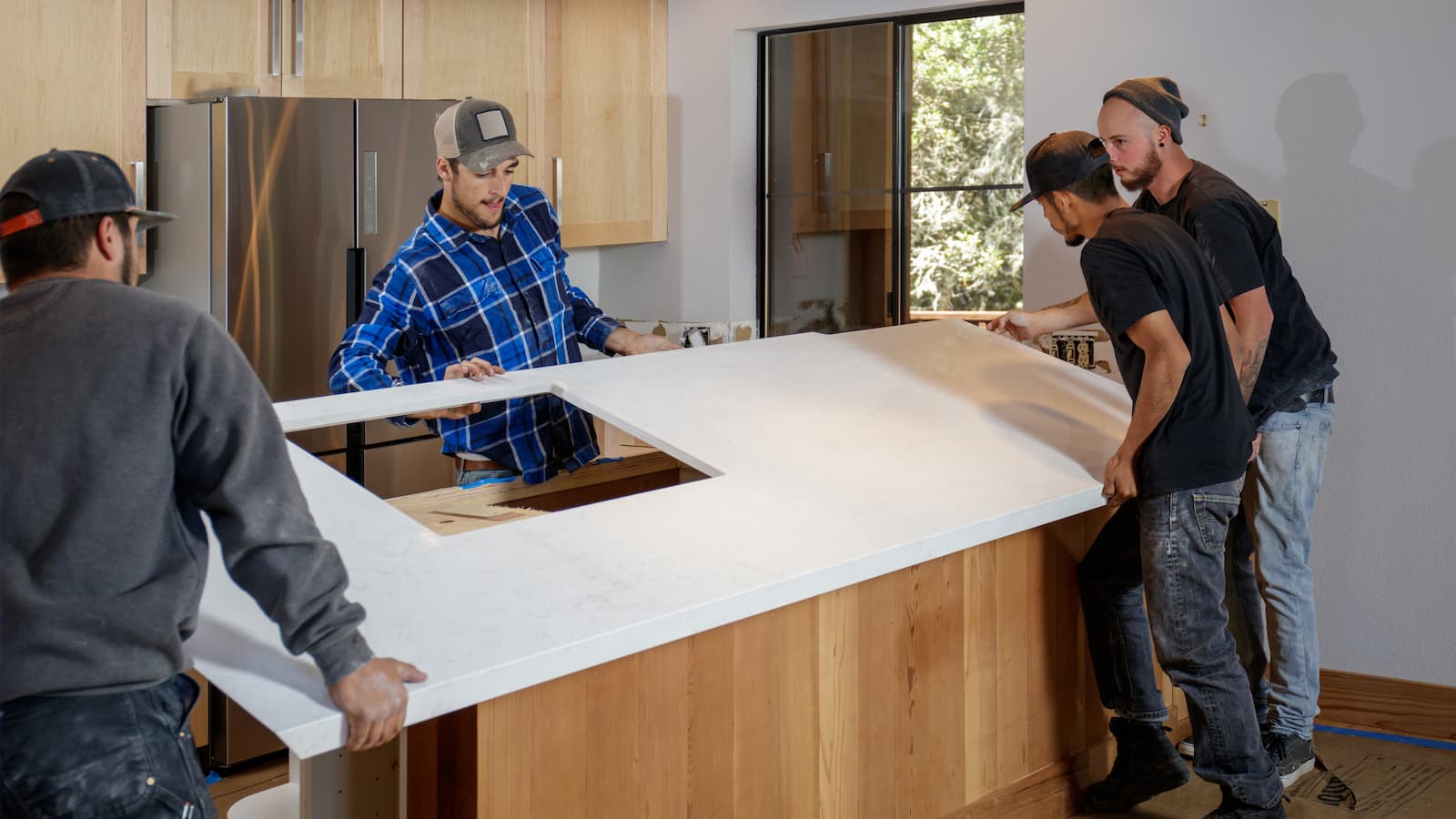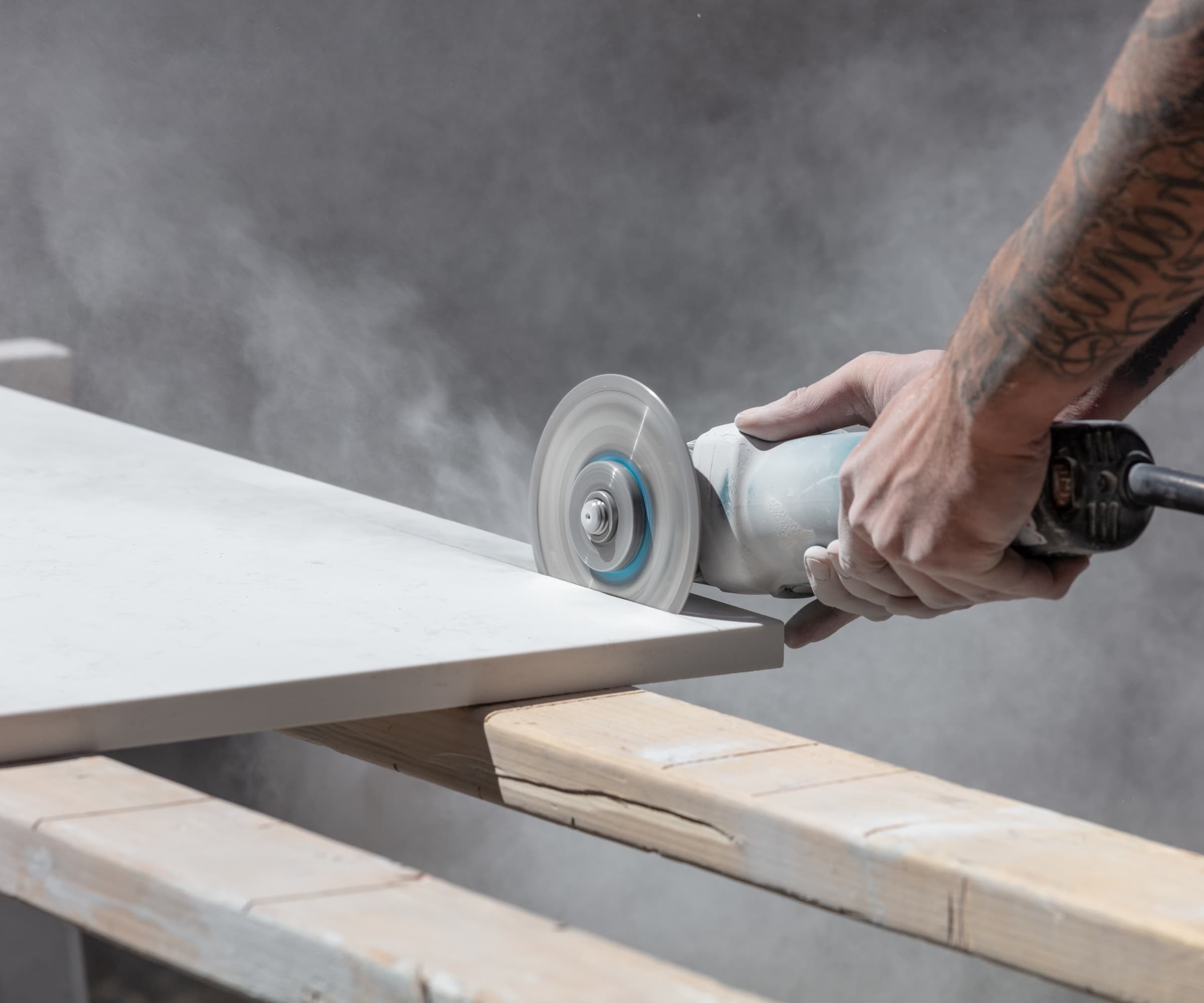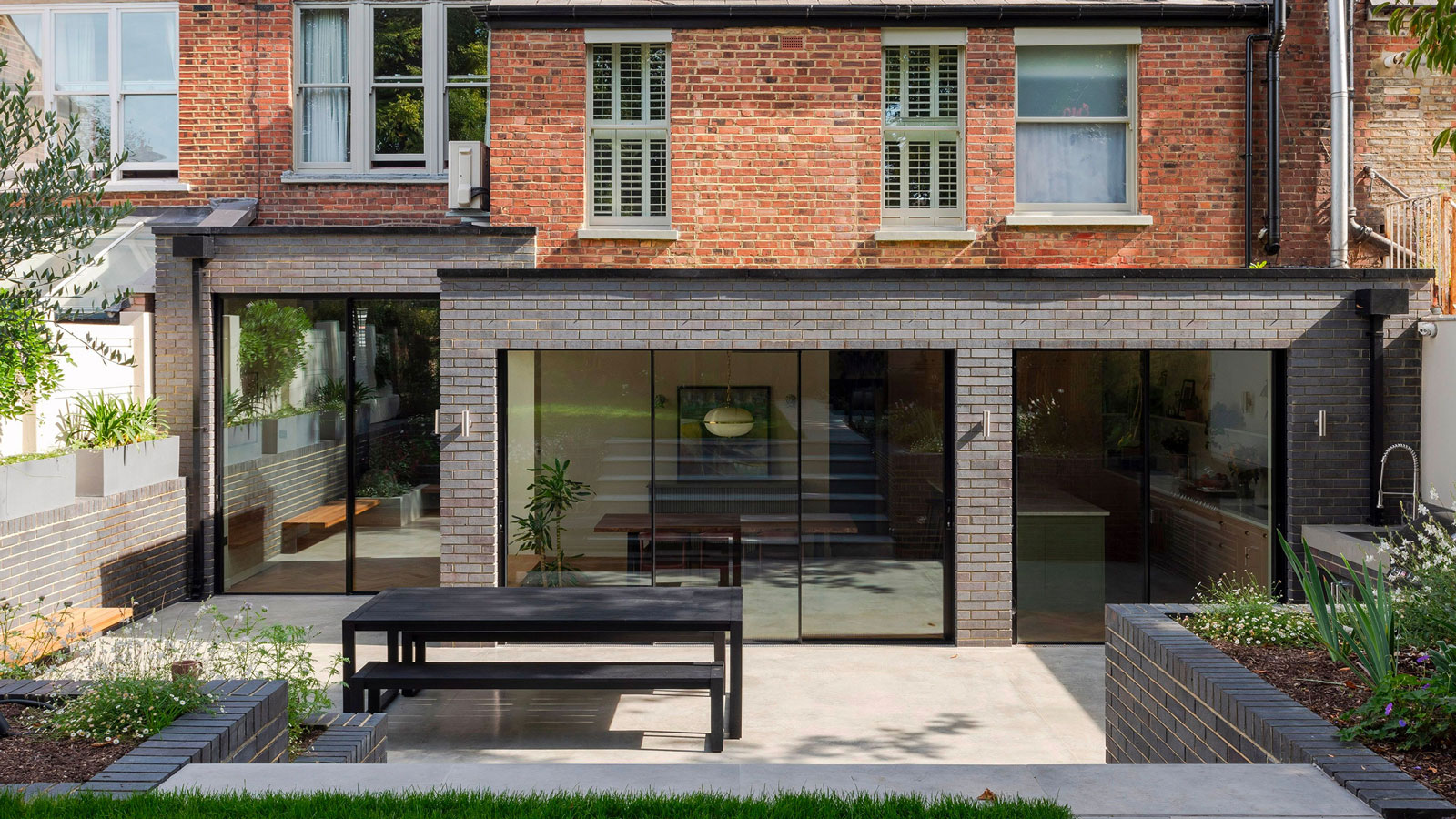Calls to ban kitchen worktops made from artificial stone over health concerns
Artificial stone worktops have been linked to eight cases of industry workers getting silicosis, with one patient dying

Bring your dream home to life with expert advice, how to guides and design inspiration. Sign up for our newsletter and get two free tickets to a Homebuilding & Renovating Show near you.
You are now subscribed
Your newsletter sign-up was successful
Medical professionals are pressing the UK Government to ban artificial stone worktops due to their links with a number of cases of silicosis.
The first UK workers to be diagnosed with the lung disease were announced last year but the numbers have since risen with eight cases of people working with artificial stone worktops now being confirmed, with one fatality.
Medical experts are now calling to ban artificial kitchen worktops after claims they are posing serious health risks to workers in the industry.
How can stone worktops cause silicosis?
Silicosis is a condition primarily affects workers who are exposed to silica through certain types of occupational environments, such as those involved in cutting, grinding, or polishing stone worktops.
Artificial stone, or engineered stone, used widely for kitchen and bathroom worktops, is composed of crushed natural stone mixed with resins and pigments.
Compared to natural stones like granite or marble, engineered stone typically contains much higher levels of crystalline silica, up to 90%. This heightened silica content significantly increases the risk of inhalation during processing.
Cutting, grinding, and polishing artificial stone worktops generate substantial dust, releasing fine particles laden with crystalline silica.
Bring your dream home to life with expert advice, how to guides and design inspiration. Sign up for our newsletter and get two free tickets to a Homebuilding & Renovating Show near you.
However, homeowners who already have artificial stone installed should not be worried as they will not be at risk as long as they don't disturb the surface of the worktop.

What artificial stone worktops can cause silicosis?
Artificial stone worktops, also known as engineered stone, can cause silicosis due to their high crystalline silica content. According to the National Library of Medicine some popular brands and types of artificial stone that pose this risk include:
- Quartz-based worktops: These are some of the most common types of engineered stone worktops. Brands such as Caesarstone, Silestone and Cambria produce quartz countertops.
- Engineered marble: While less common than quartz, engineered marble also contains a high amount of silica. Brands like Statuario Maximus and Venatino are examples of engineered marble products.
- Granite composite: Some engineered stones mimic the appearance of granite but are actually made from a mix of crushed stone, including high levels of silica, bound together with resins.
These materials are popular due to their durability, aesthetic appeal, and cost efficiency compared to natural stone. However, the high silica content makes them hazardous to workers who cut, grind, or polish the surfaces without proper protective measures, leading to the risk of silicosis.
Other popular brands such as Corian and Sensa reportedly have low risk of silicosis due to their low silica content, whereas Dekton may contain silica but is less likely to than others.
Quartzite does have high silica content and poses a significant silicosis risk, but it is a natural stone and not artificial.
First cases of silicosis linked to stone cutting reported
The first UK case of silicosis related to artificial stone cutting was identified last year, marking the beginning of a troubling trend.
Experts, led by Dr Jo Feary from Royal Brompton Hospital, have documented eight cases so far, all involving young men in their 20s and 30s. Tragically, one patient has already died from the disease.
Dr Feary emphasised the urgency of addressing this issue, stating: “If they didn’t do their job, they wouldn’t have a disease, and it should be preventable. So we need urgent action.”
Experts call for immediate ban on artificial stone worktops
In response to the growing concern, Dr Patrick Howlett from Imperial College London proposed stricter limits on silica dust exposure across different work settings.
Dr Howlett commented on the findings where eight people were diagnosed with silicosis, where he said: “This research supports the reduction of permissible exposure limits over an eight-hour working shift.
“Although lowering exposure limits across different settings is challenging, it has been shown to be achievable.
“We strongly believe it is important to reduce the number of silicosis cases, given the severity of the disease.”
Dr Fiery says the number of workers who have been or will be exposed to the risk of silicosis is not know. She said: “I don’t know how many people in the UK work with engineered stone, and so I don’t know how many people are at risk of breathing in the dust and developing the disease.
“Artificial stone, or engineered stone, has been around for a few decades, but I think it’s increasingly dominating the market for kitchen worktops."
The Health and Safety Executive reassured the public of ongoing efforts to manage silica exposure risks and protect workers. However, calls for decisive regulatory action continue to intensify.

News Editor Joseph has previously written for Today’s Media and Chambers & Partners, focusing on news for conveyancers and industry professionals. Joseph has just started his own self build project, building his own home on his family’s farm with planning permission for a timber frame, three-bedroom house in a one-acre field. The foundation work has already begun and he hopes to have the home built in the next year. Prior to this he renovated his family's home as well as doing several DIY projects, including installing a shower, building sheds, and livestock fences and shelters for the farm’s animals. Outside of homebuilding, Joseph loves rugby and has written for Rugby World, the world’s largest rugby magazine.
